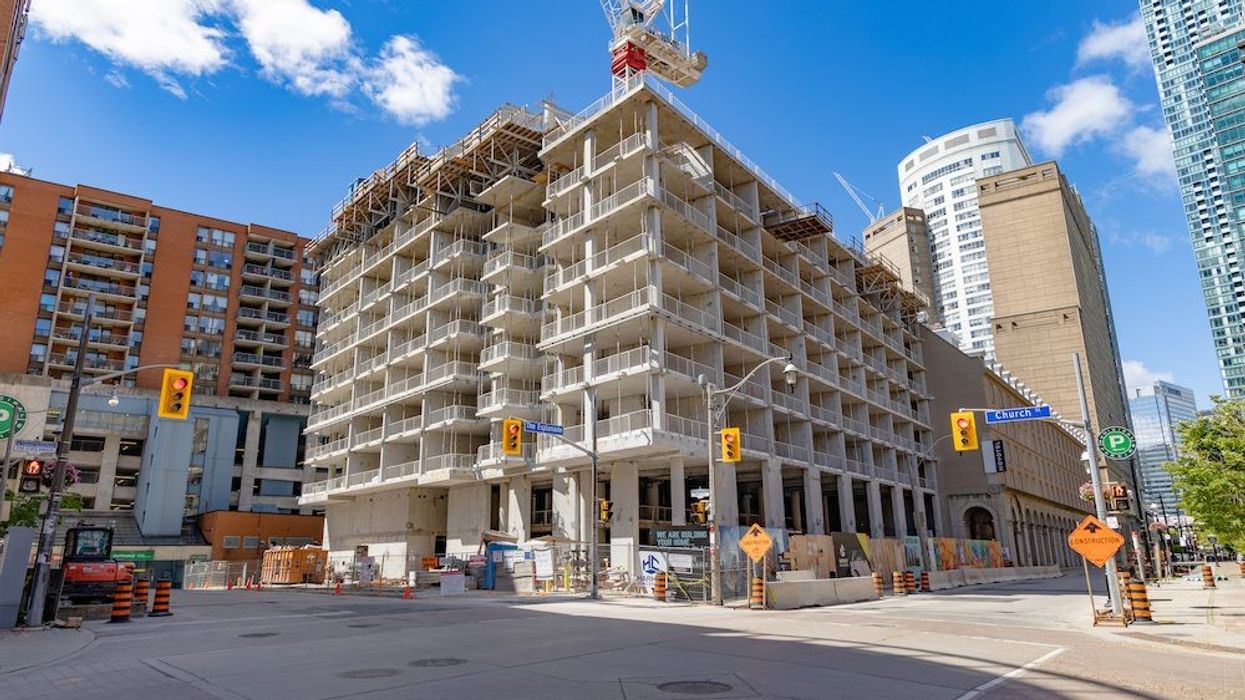Ontario’s residential construction industry faces a Herculean task to meet the target of building 1.5M homes in the province over the next decade. The City of Toronto is not helping matters.
A report on employee talent, retention and attraction to the city’s planning and housing committee indicates that Toronto can’t meet its own approvals review standards -- a truly remarkable acknowledgement -- made even more stunning by the fact there is no plan to fix the problem.
The report has been forwarded to city council without recommendations. It is scheduled to be considered by council on July 19.
For years, builders have faced a slow approvals process. However, it’s more critical now because we’re in a perfect storm of material and supply chain challenges, massive inflation, and interest rate headwinds which are affecting the ability of the industry to deliver housing. Building new housing or proposing new projects becomes immeasurably more difficult if the city can’t keep up.
The residential building industry has endured through a growing regulatory maze and longer approvals times while facing real penalties for not delivering on time. There is no room for double standards. The city must fix the system and find ways to ensure projects are approved in a timely manner.
RESCON has sponsored numerous reports about this very problem. One such report of 172 projects between 2006 and 2016 demonstrated that delays were getting longer. The assertion the delays were due to projects being larger and more complex was not supported by the city’s own data.
Builder “Brain Drain” Among Many Issues
Staff shortages have hit multiple city departments that pay a role in development approvals processing. The planning department has an approved complement of 477 full-time staff, but the vacancy rate as of April 30 was 12.8%. A quarter of the staff are also new to the division since January 2020.
READ: Toronto City Planning Having “Significant” Staff Retention Issues Amid Toronto’s High Housing Costs
The city report identifies reasons for high turnover and the current vacancy rate. Compensation, flexibility in making offers, life cycle, work characteristics, portability, and cost of living are some of the issues. However, there is no strategy or proposal to address the issues or propose potential solutions.
Builders are at a breaking point. Predictability, accountability, efficiency, and transparency in the approvals process will be especially vital if there is any hope for the industry to sustain housing production.
Persistent and growing staff vacancy rates at city hall won’t help us tackle the growing housing and affordability crisis. It is incumbent upon the city to have the necessary staff complement to efficiently process applications. The system must be fixed, or it will only lead to more cancellations and inhibit development of new projects.
Toronto is starting to see a talent brain drain due to the lack of housing. Toronto recently joined the list of 10 cities in Canada and the U.S. with the most significant population declines.
The situation carries a hefty cost. A Toronto Region Board of Trade and WoodGreen Community Services report found that nearly $8B is being drained out of the GTA economy every year due to high house prices.
Fixing the problem will depend on significant reforms. Without real change, the current market correction will only make things worse.
There is some light on the horizon. The province’s Housing Supply Task Force identified 55 sweeping recommendations to move the needle on housing. The task force report calls on the province to create more supply by allowing housing in more locations “as of right” without the need for municipal approval, and to do away with rules that prioritize preservation of neighbourhood physical character over new housing.
While these moves might not be popular in some circles, the fact of the matter is that drastic measures are needed to boost production because too many working families are unable to afford a home.
The good news is that we have a provincial government that gets it. On the campaign trail, Premier Doug Ford noted that housing was a priority. In his election night victory speech, he reiterated the point.
The big question now is whether government can act with the speed required to correct the course. RESCON will be doing everything we can to make that happen.





















